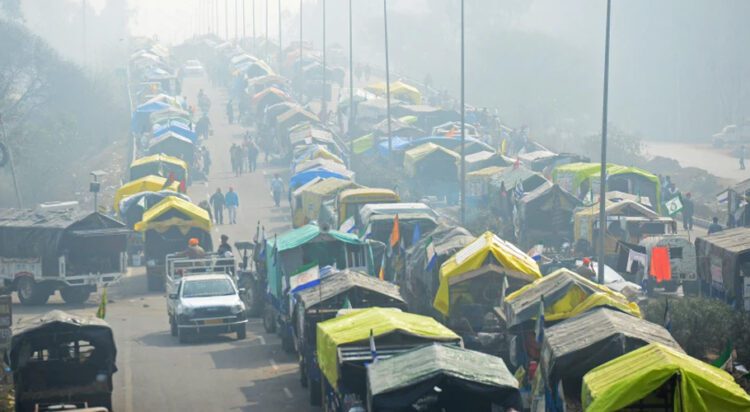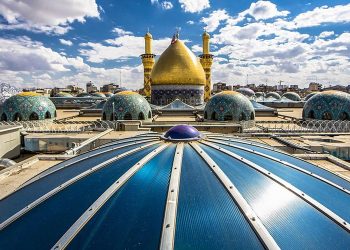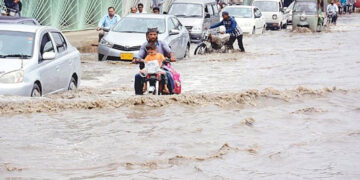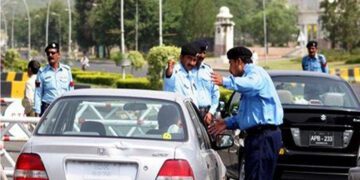NEW DELHI: Indian farmers have rejected a proposal from the government, and say they will continue their march to the capital, New Delhi.
Last week, the protesting farmers embarked on their march towards the city, only to encounter staunch resistance from authorities. Tear gas and heavily fortified barriers obstructed their path into the capital, a precautionary measure to prevent a recurrence of the prolonged 2021 farmer protests, during which demonstrators camped on the outskirts for over a year.
On Monday night, farm leaders disclosed their rejection of the government’s proposal for a five-year contract guaranteeing prices for specific crops, including pulses, maize, and cotton. Jagjit Singh Dallewal, a prominent figure leading the protest, asserted to the Press Trust of India news agency that the government’s offer did not align with the farmers’ interests. Despite being stationed some 120 miles from the capital awaiting the government’s response, tens of thousands of farmers, as per Dallewal, will recommence their march to New Delhi on Wednesday.
Dallewal appealed to the government to either address their grievances or dismantle the barricades obstructing their peaceful protest route to Delhi. These demonstrations echo those from over two years ago, when tens of thousands of farmers staged a prolonged sit-in on the outskirts of New Delhi, ultimately prompting the government to repeal controversial agriculture laws.
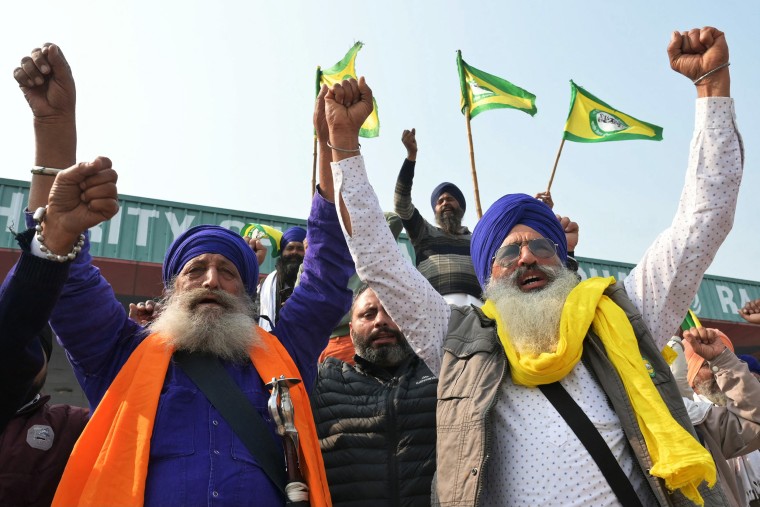
The current protests revolve around demands for legislation ensuring minimum support prices for all agricultural produce. Presently, the government safeguards farmers against drastic price declines by establishing a minimum purchase price for essential crops, a system implemented in the 1960s to stabilize food reserves and prevent shortages.
Farmers argue that a guaranteed minimum support price would provide stability to their incomes. They also insist on the fulfillment of promises made during the 2021 protests, including doubling their income, waiving their loans, and withdrawing legal actions taken against them.
Despite numerous meetings between farm leaders and government officials, a resolution remains elusive. Piyush Goyal, one of the ministers engaging with the farmers, acknowledged that some demands are complex and deeply rooted in policy, exacerbating the difficulty in finding common ground.
These protests unfold against the backdrop of impending national elections, with Prime Minister Narendra Modi’s party poised to secure a third consecutive term. Farmers, a pivotal constituency for Modi, hold significant sway in northern Haryana and other states governed by his Bharatiya Janata Party.







